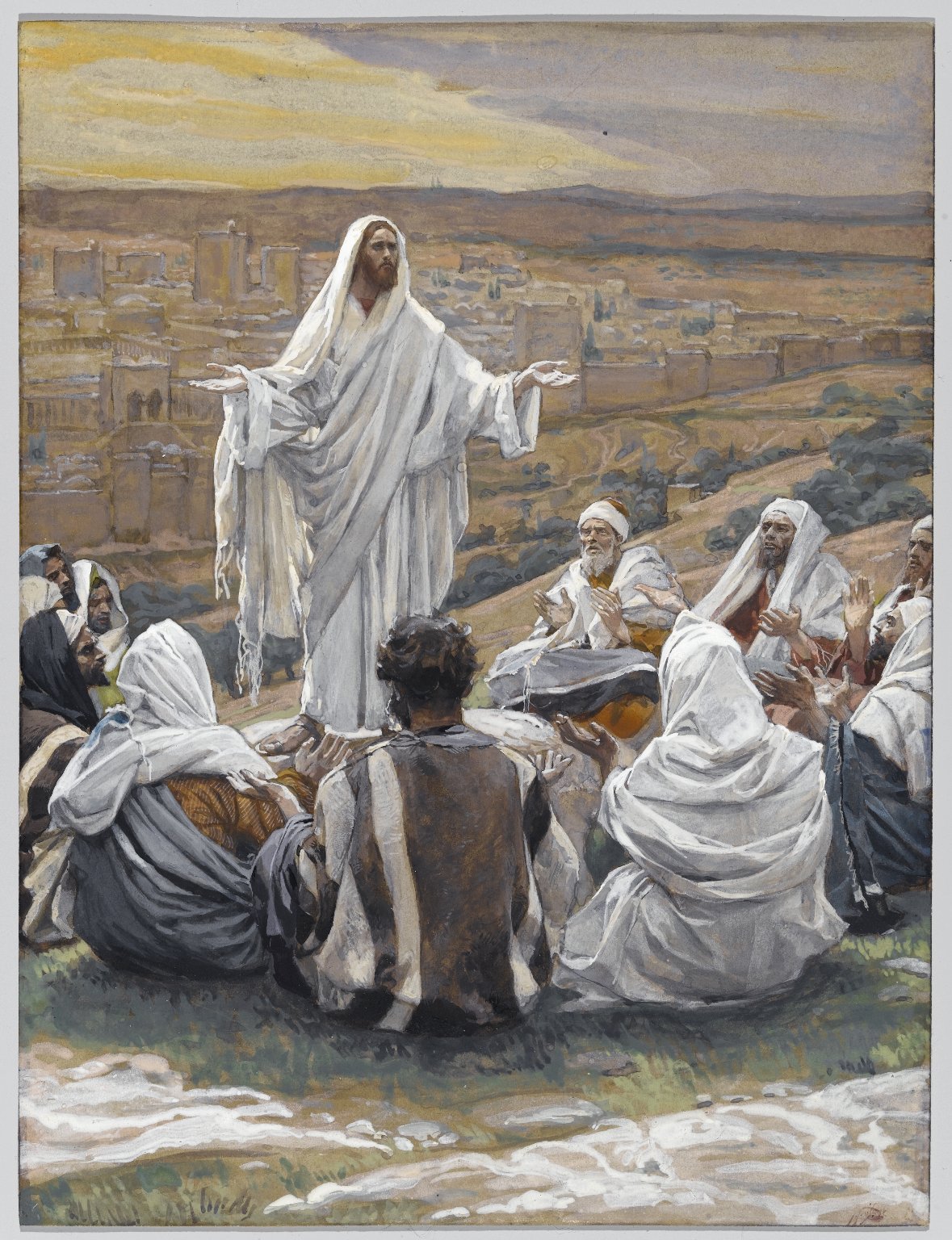
“The Lord’s Prayer,” James Tissot (1836-1902), painted between 1886 and 1894, gouache over graphite on gray wove paper, in the European Art collection of the Brooklyn Museum, New York. WIKIMEDIA COMMONS/PUBLIC DOMAIN
Spiritual Life
Our Father asks for the grace to do his will
November 18, 2020
Today we continue discussing the Catechism’s teaching on the Our Father. We read, “After we have placed ourselves in the presence of God our Father to adore and to love and to bless him, the Spirit of adoption stirs up in our hearts seven petitions, seven blessings. The first three, more theological, draw us toward the glory of the Father ….” (no. 2803). Let’s look at these three petitions.
Like the Ten Commandments, the petitions begin with a focus on God. “It is characteristic of love to think first of the one whom we love” (no. 2804). Do we start prayer by enumerating our needs? Does this indicate the strength of our love for God? Perhaps our personal prayer needs to align more with the pattern of the Our Father. Focusing on God first both honors him and aids us: “By the three first petitions, we are strengthened in faith, filled with hope, and set aflame by charity” (no. 2806).
We begin with “Hallowed be thy name,” recognizing and proclaiming that God is holy. This petition echoes the first two commandments – to have no gods but the Lord and to avoid taking his name in vain. We all know that we should not use God’s name as a curse word. But the commandments and petition go beyond that. God first revealed his name to Moses, teaching through him, “You shall be holy, for I the Lord your God am holy” (Lev 19:2).
When the Israelites disobeyed, the prophets proclaimed that Israel was profaning God’s name in the sight of the nations (CCC, no. 2811). “The sanctification of his name among the nations depends inseparably on our life and our prayer” (no. 2814). Asking that God’s name be hallowed, we ask that our lives attest to his holiness.
Jesus embodied hallowing God’s name. He perfectly revealed God’s holiness. How? By initiating God’s kingdom on earth and fulfilling the Father’s will.
So, we continue, “Thy kingdom come.” “The Kingdom of God has been coming since the Last Supper and, in the Eucharist, it is in our midst” (no. 2816). The third commandment directs us to honor the Sabbath. Faithfully attending Sunday Mass and receiving the Eucharist worthily fortifies our place in God’s kingdom. The Eucharist makes us more like Christ and unites us as one people. We anticipate Christ’s second coming when we let the Holy Spirit reign in our hearts, overcoming sin and selfishness (nos. 2818-20).
“Thy will be done on earth as it is in Heaven.” Earth is to reflect heaven. Our lives are to reflect God’s love. God desires all people to be saved. He calls us to love them all. “His commandment is ‘that you love one another; even as I have loved you, that you also love one another.’ This commandment summarizes all the others and expresses his entire will” (no. 2822).
Jesus obediently accepted the Father’s will. When we humble ourselves to accept God’s will, we participate in the world’s salvation. “We ask our Father to unite our will to his Son’s, in order to fulfill his will, his plan of salvation for the life of the world. We are radically incapable of this, but united with Jesus and with the power of his Holy Spirit, we can surrender our will to him and decide to choose what his Son has always chosen: to do what is pleasing to the Father” (no. 2825).
As these three petitions teach, we hallow God’s name and further his kingdom by allowing his will to be done in us, just as it was in Jesus.
Connie Rossini is a member of St. Peter Parish in Omaha. She is the author of “The Q&A Guide to Mental Prayer,” now available at amazon.com, and five other books on Catholic spirituality.